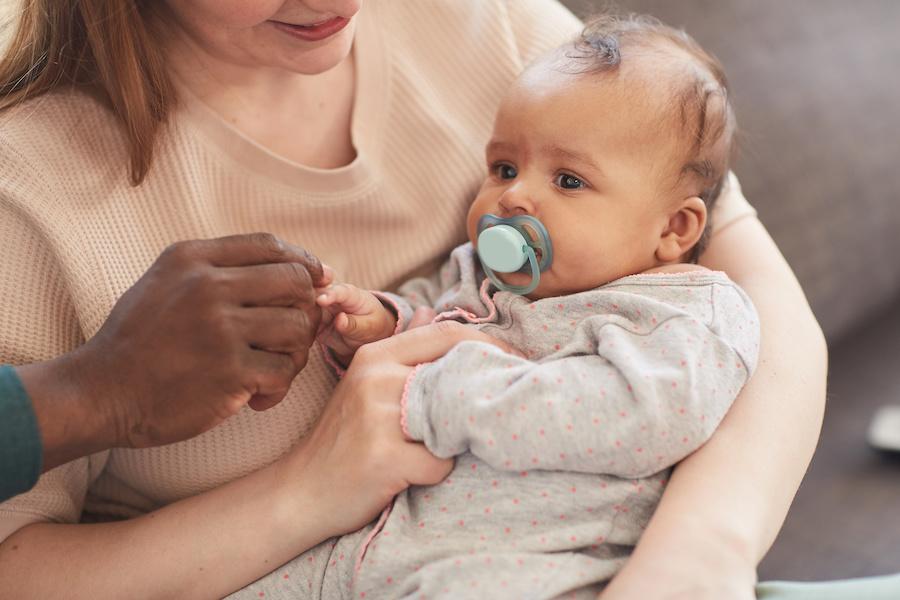From birth, babies have different personalities and dispositions. Some babies are easy to get to know, while it takes longer with others. Some are clear in their signals, while others are less so. There’s no right or wrong. Once you get to know your baby’s signals, it will be easier to interpret and satisfy your baby’s needs.
How to foster bonding
For some parents, the love connection to their baby starts during the pregnancy. For others, it starts once their baby is born and for some, it takes a while. There are several things you can do to foster bonding with your baby:
- Baby’s needs—Influence your bond to your baby by experimenting with what your baby needs in terms of food, closeness, a change of diaper or burping.
- Skin-to-skin—Studies show that when baby is held skin-to-skin (with the nose unobstructed), the mother / father / partner start talking with the baby and the baby makes small noises in response.
- Make the most of when baby is awake—When your baby has brief moments of satisfaction and alertness, enjoy the chance to spend a social moment with your baby.
- Be present and attentive—When you sing with your baby, look into your baby’s eyes, smile, make funny sounds, rock or massage your baby, you strengthen the interaction between the two of you. Take an extra moment together when you change diapers.
- Talk with your baby—Start talking with your baby early on. Use positive words. Find your way to communicate.
- Nursing/Feeding—Nursing/feeding your baby is so much more than just food. It is a question of closeness, security, peace and quiet, and comfort for the baby.
- Think and feel that you are the best parent—For your baby, you are always the best mother/father/parent. Baby recognizes your voice from the pregnancy and your face is so interesting.
- Limit screen time when baby is awake—Use your phone and iPad when baby is asleep.
After between three and six weeks, you will get a smile that goes straight to your parental heart in response. Later, when you talk with your baby, your baby will listen and when you are quiet, your baby will respond with babbling.
A moment with your baby where you kiss his or her feet, or recite rhymes, or read books is a positive way to stimulate the development of your baby’s brain.
The first week
The first week with your baby is often delicate and emotional. All parents get stressed, more or less, at times. This stress stems from becoming a parent, but some feel a sense of loss for their earlier life. It takes time to get to know your baby. If breastfeeding is a challenge, or if you feel very anxious, it’s perfectly natural to feel insufficient. You’re not the only one to feel this way.
Rest during the day while baby sleeps if you have trouble sleeping at night. Crawl into bed for the day, or go outdoors for some fresh air. Take one day at a time. Respect what you’re going through and get support from those around you. Remember that you are the very best person for your baby, and you are doing your absolute best.
